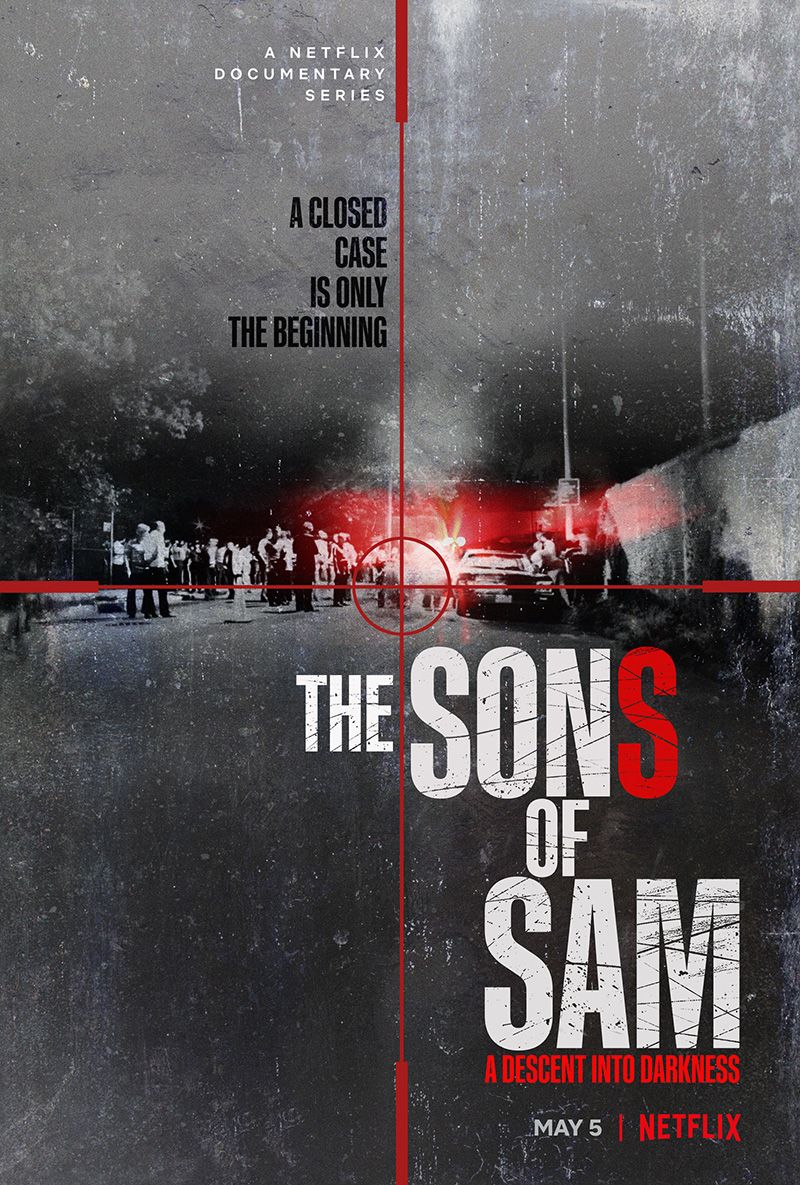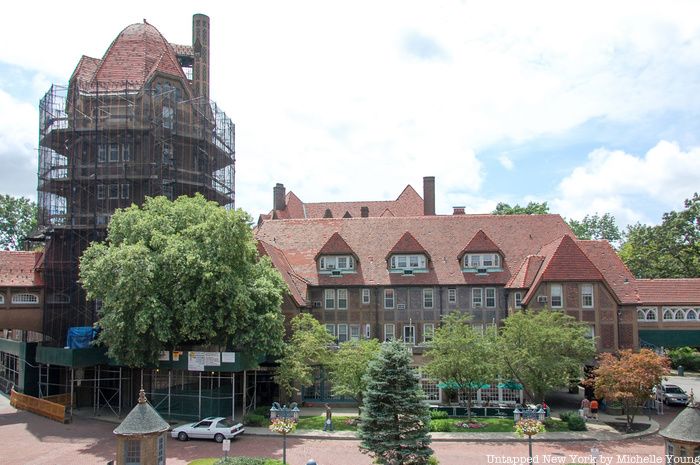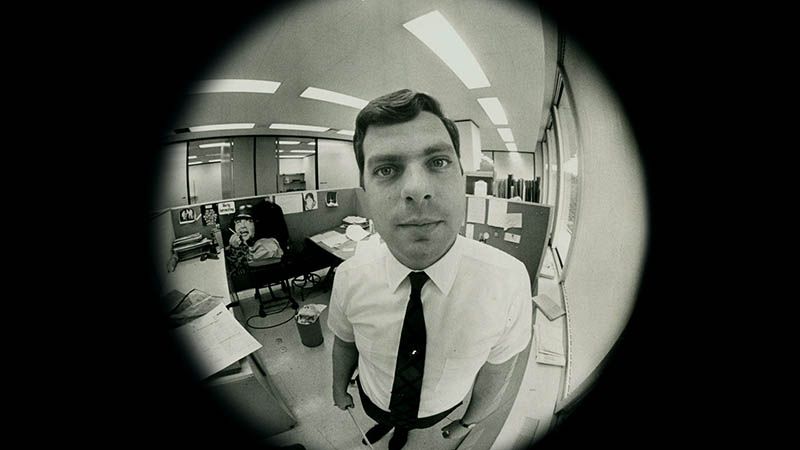How to Make a Subway Map with John Tauranac
Hear from an author and map designer who has been creating maps of the NYC subway, officially and unofficially, for over forty years!


The new documentary series “The Sons of Sam: A Descent Info Darkness” on Netflix looks back at the events leading up to the summer of 1977 in New York City, known as the “Summer of Sam.” An unknown serial killer was terrorizing young folks in New York City indiscriminately, shooting them as they sat in cars, often in couples. “The Sons of Sam” begins as a true-crime documentary traditionally does, with voice overs, interviews, graphic overlays of newspaper clippings and old news footage. Though the police solve the case, arresting a David Berkowitz who confessed to all the killings, the series is really about the obsession of one former reporter named Maury Terry who believes there is much more to the killing spree than just Berkowitz.

For New York City buffs (and those who desperately want to believe the city is dead), the first episode of “Sons of Sam” provides a lot of context of what New York was like back in the era of the Summer of Sam. The opening sequence includes a shot of the famous Fear City pamphlets, In the first episode, we’re shown a vintage photograph of a barren west side of Manhattan before Battery Park City was built and an empty Dumbo, precisely at the intersection where people now come in droves dressed to the nines with selfie sticks. Overlaid are the words of Terry (narrated by Paul Giamatti, on his off-time from from Billions which has just started resuming filming), “It was the summer of 1977….outside, the city was in turmoil and a dark wind was blowing.,”
For historical context, in “The Sons of Sam” we are shown news reels of then-New York City mayor Abe Beame talking about the financial crisis, which he explains has been spurred on by a “tremendous increase in the cost of borrowing,” leading to unemployment. Streets are piled high with garbage (a là the great garbage strike of 1968). News reels show gritty old Times Square (scenes more recently recreated in the show The Deuce), with reporters talking about the crime levels, prostitution, and squatting in that time period. Meanwhile, Beame was planning a layoff of 10,000 cops, firemen and safety officers, and police officers were protesting and picketing the plan. Back in 1971, the police force went on strike for a week.
Amidst all of this, the Son of Sam began to strike, with his first kill in the Bronx on July 29, 1976. Two young women, Donna Valuri and Jody Valenti were sitting in a car in front of the apartment building Donna lived in with her parents when two shots came in through the car window killing Donna immediately.
Three months later on October 23, 1976, Carl Denaro and his friend Rosemary go home together from a bar in Queens.. They stop in their car, lighting up a joint, around the the intersection of 159th Street and 33rd Avenue in Flushing, a residential street one block south of Bowne Park. Denaro was shot in the head but survived.
A month later on the day after Thanksgiving, an attack occurs in Bellerose, Queens on a front stoop where two young women, Joanne Lomino and Donna Demasi were shot. Both survived but Lomino was paralyzed. Their eyewitness accounts gave the police the ability to make a composite sketch for the first time.

Two months later in January 1977, another shooting in Queens leaves Christine Freund dead in a car. Her companion, John Diel, survives. This time, the quaint square in front of the Long Island Railroad Station in Forest Hills is the backdrop and police recover the .44 caliber bullets that leads to the Son of Sam being known first as “.44 Caliber Killer.”
Five weeks later is another shooting in Forest Hills, of a 19-year-old Columbia University student, Virginia Voskerichian, while she was walking home. The two bullets from the recent incidents matched and were identified as coming from a Charter Arms .44 caliber gun.
A profile emerges of the Son of Sam’s victims — mostly women with brown shoulder length hair, often out near nightspots with a significant other or love interest. In response, the women in New York City started cutting their hair short, putting their hair in scarves or up in buns, or dying their hair. People became afraid to go out at night or go to nightclubs, and started buying protective gear.
On April 17, 1977, Son of Sam strikes again just two blocks away from the scene of his first known victim in the Bronx. Yount couple Valentina Suriani and Alexander Esau were shot and killed in their car on a Hutchinson River Parkway service road. At the scene, the Son of Sam leaves a letter for Queens homicide detective Joe Borelli. This is where he identifies himself as the “Son of Sam,” referencing a father named “Sam” who beats him and pushes him to kill, along with some possible satanic references.
Next, the Son of Sam writes a letter to New York Daily News reporter Jimmy Breslin after Breslin writes a cover story telling Sam to give up. Son of Sam signs the letter “Sam’s Creation” and provides some nicknames for himself to Breslin, including “The Duke of Death,” “The Wicked King of Wicker,” “The 22 Disciples of Hell” and “John Wheaties, rapist and suffocator of young girls.” Breslin publishes the Son of Sam’s letter in the newspaper before sharing it with police, creating a media frenzy. On June 25, 1977, after a two month hiatus, Son of Sam returns to Queens in Bayside, near Forest Hills. The victims, a young couple in their car, survived.
Then, the blackout of 1977 happened, starting July 13, 1977 leading to a night of looting. As PBS American Experience reported, “By the time the power was fully restored more than a day later, more than 1,600 businesses had been looted, over 3,700 people had been arrested, and firefighters had battled more than 1,000 fires.”
On the anniversary of his the Son of Sam’s first killing, July 29, 1977, police go all out in the Bronx and Queens, hoping to prevent another attack. On-duty police officers and plainclothes police officers in unmarked cars patrol the neighborhoods where Son of Sam struck before, checking ID, and monitoring the bridges and tunnels. But the anniversary came and went without incident.
On July 31, 1977, the Son of Sam goes for his next victims in a whole new area — his first Brooklyn hit. Stacy Moskowitz (a blonde) and Robert Violante, both age 20, were shot in a car not far from the Belt Parkway. Moskowitz dies after attempts to save her in the hospital.
Eyewitness reports produce yet another sketch, leading police to believe the Son of Sam wears a wig to vary up his hairstyle. Around this time, a reporter asks the police if there might be two killers working together, a theory which the police say is not supported by evidence.
Detectives then search for parking summons in the area of the Brooklyn slayings, and land on a David Berkowitz, 24 years old, from Yonkers. He received a ticket on the night of July 31st in Brooklyn for parking at a hydrant. His neighbor Wheat Carr is the phone dispatcher when an NYPD detective calls. She says she’s his neighbor and that Berkowitz shot the dog of her father, Sam Carr.
Brooklyn detectives go up to Yonkers and stake out his apartment building at 35 Pine Street. With the help of a Yonkers detective, they identify and arrest Berkowitz after finding the .44 caliber gun in his car. When asked if he is indeed David Berkowitz, he answers, “No I’m the Son of Sam and you got me.” Berkowitz later told police that “Sam” was the dog that belonged to Sam Carr, that he was 6,000 years old, and speaking to him.

After all this background, “The Sons of Sam” returns to Maury Terry, who begins questioning the lack of consistency between the sketches and Berkowitz himself. Terry finds in the phone book that another person is listed at that Yonkers address, a “John Wheat Carr” — he surmises this is perhaps the “John Wheaties” in the letter from Son of Sam and whom Terry feels looks more like the sketches. John is Sam Carr’s son. The subsequent episodes of The Sons of Sam: A Descent Info Darkness follow Terry’s obsession, in tandem with Berkowitz’ story post-arrest.
The Sons of Sam director Joshua Zeman also directed Cropsey, following another serial killer in New York City who abducted a boy on the grounds of the Staten Island Farm Colony. You can watch “”The Sons of Sam” on Netflix.
Subscribe to our newsletter